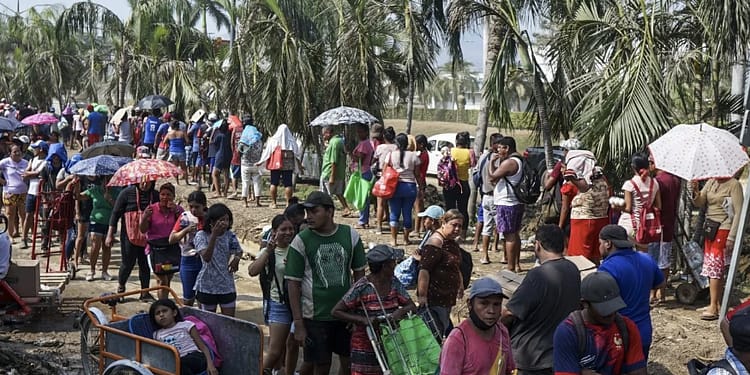- What is vortioxetine and what is this antidepressant prescribed for? - October 7, 2025
- Ketoconazole Shampoo: How to Use It Correctly for Dandruff and Dermatitis? - October 6, 2025
- What is the best time to take Hydroferol to absorb it better? - October 3, 2025
On the eve of COP29, the World Health Organization (WHO) makes a strong call to integrate health into climate negotiationsClimate change and health cannot be addressed in separate compartments, as both phenomena are inextricably linked.
WHO, in collaboration with more than 100 organizations and 300 experts, has developed a Special report identifies key policies to protect people and the planetThe document urges governments to rethink their governance so that health is the metric of success in climate action, something that has not been a priority until now. And, in the meantime, the consequences of this omission continue to increase: respiratory diseases, heat strokes, food crises, and more. These are just some of the direct effects of a system that has prioritized economic growth without thinking about human health.
According to the WHO, this statement is not an exaggeration; it is the reality experienced by millions of people, especially in the most vulnerable communities.
The WHO has urged world leaders to put health at the heart of climate policy.
“The climate crisis is a health crisis,” says its Director General, Tedros Adhanom Ghebreyesus.
The relationship between health and climate is clear, but governments still need to act accordingly. According to the WHO report, fossil fuel subsidies must be eliminated and Mobilize increased financing to create resilient and sustainable health systems.
These measures would not only reduce pollution-related illnesses, but would also protect the planet for future generations. Why, then, are we still stuck in an economy that relies on fossil fuels and ignores health risks? Inertia and economic interests are part of the answer, but the cost of this inaction is too high.
According to the report, five specific interventions—such as heat warning systems and clean energy in homes—could save up to two million lives a year. For every dollar invested in these measures, four dollars in benefits would be generated. These data should not be ignored, especially when human health and well-being are at stake.
Dr Maria Neira, Director of Environment, Climate Change and Health at WHO, says “health is the argument we need to catalyse urgent action”.
Lack of international commitment
However, health integration in Nationally Determined Contributions (NDCs) has been insufficient. Although countries' 91% identifies it as a priority, few include specific actions to harness the health benefits of climate adaptation. To address this gap, WHO has published a guide offering practical recommendations for integrating health into climate policiesThis effort is essential, since NDCs constitute national commitments under the Paris Agreement, and without effective integration of health into these plans, any progress will be partial and insufficient.
WHO also leads the Alliance for Transformative Action on Climate and Health (ATACH), a platform that brings together 90 countries and 75 partners to promote climate-resilient health systems. These types of initiatives are key, as we cannot afford to advance climate action without a comprehensive approach that considers health in all its dimensions.
Opinions
UN Secretary-General António Guterres stressed that “human health and planetary health are intertwined”This phrase sums up a simple but powerful truth that leaders should keep in mind at COP29.
Climate change, as the report highlights, is causing suffering in every corner of the planet. It is not just about degrees of temperature, but about lives affected, economies impacted and inequalities amplified.
As indicated by the Dr Vanessa Kerry, WHO Special Envoy, “As leaders gather for COP29, we urge them to accelerate a just transition and increase funding for health systems and frontline health workers. The role of health in climate action cannot remain a secondary issue. The climate crisis is ultimately a public health crisis, and it is time we address it with the seriousness it deserves.
Globally, climate change is already taking lives and causing pain. As noted by the Dr Alan Dangour, Wellcome, “This is a common crisis that must unite us to act.” Acting means that at COP29, countries must commit to taking bold measures that protect both the planet and the health of its inhabitants. We are at a crossroads where the decisions we make can define the future of humanity. Health must be at the center of these decisions, not only as a metric of progress, but as the ultimate goal of our climate actions.
At COP29, the voices of health and climate change experts must resonate louder than everDr. Micaela Serafini of Doctors Without Borders warned that the most vulnerable people are paying the highest price for a crisis they did not cause.. We cannot allow human well-being to be left out of the climate negotiations. And as Jagan Chapagain of the International Federation of Red Cross and Red Crescent Societies pointed out, “the climate crisis is the ultimate health crisis.” Here’s the reality: climate change affects every aspect of our health, and only urgent, coordinated action can stop its devastating impact.






